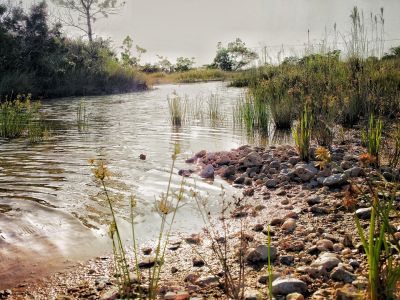Engineers Without Borders (EWB)

Students, working through Engineers Without Borders and similar organizations travel to developing areas to volunteer their services in hopes of improving living standards. A part of the Research, Ethics, and Society project, this case can be used to address the social responsibilities of researchers, particularly those concerning pro bono work and cross-cultural contexts.
- If a small town cannot afford the services of an engineer to improve a water supply system, should engineers voluntarily work on the project? Why or why not?
- If so, should they only volunteer for projects started by local communities, or should they suggest opportunities?
Water for Belize
In the late 1990s, Bernard Amadei, a civil engineer from the University of Colorado at Boulder developed a water supply system for a small rural community in Belize. The village had no water delivery system and adults worked long hours at a nearby banana plantation. With no fresh water immediately available, children spent their days walking back and forth, carrying buckets of water from a nearby river to their village. Amadei and his engineering students developed and built a distribution system that carried water to the village. The project gave the young children the opportunity to attend school and learn how to read and write.
How Does EWB Get Involved?
This small project drove Amadei and his students to found an American chapter of Engineers Without Borders in 2001 (EWB-USA). EWB began in France, Spain, and Italy in the 1980s and 1990s. These organizations of university engineering students work on the premise that large social impacts can come from small investments and ongoing diligence. For example, projects have included:
- A health clinic in rural Peru
- An electrical grid for lighting, computers, and internet access for a public school in Haiti
- A simple stove in Bolivia to reduce air pollution and use of wood, a precious natural resource
In order for the projects to become self-sustaining, EWB trains members of the communities that it works with to maintain the projects once the EWB engineers leave.
Social responsibilities, social entrepreneurship, and developing countries
How can engineering students develop good designs while integrating social responsibility issues into practice? Student chapters of EWB and similar organizations often join forces with social entrepreneurship programs to learn about the social and ethical implications of their work in a different culture. Successfully introducing new technologies to act in the public’s interests requires a good match between innovation and local communities. Villages in Africa and India have recently embraced two student engineering projects quite differently: cook stoves and “twig lights.”
Cook stoves
Cook stove projects identified problems with an existing technology but the long-term value of such projects has been questioned. Traditionally, women in rural villages prepare meals in unventilated kitchens, with open wood-burning stoves. Because the smoky indoor climate results in respiratory problems for most women and many children, engineers in the course of several projects have designed small, enclosed, wood-burning stoves.
Twig lights
GlobalResolve, a student initiative similar to EWB, has introduced “twig lights,” which, in contrast, have been very successful.
Understanding context
The two technologies, one instantly successful and the other unproven, help future engineers see how culture and place are important. In most such projects, making good on social responsibility means more than simply hauling tools and materials to a different country. Students learned that social responsibility success depended on addressing several questions:- Would the design of new technologies suit the local culture and their habits?
- Would people accept innovations and use them, or would they go back to ways that they were more comfortable using?
- Would villagers be able to manage sustainable development under conditions of poverty?
- Who would the engineers help train in order to keep the technologies working once the engineers left?
Engineers' Social Responsibilities: Questions to Consider
- EWB chapters and related groups started their projects to develop water supplies, cook stoves, and generators described above with the goal of benefiting the communities they worked with. What kinds of risks might the projects also create? Who should be involved in determining what risks are acceptable in a development project?
- One reason that engineers have social responsibilities is their expertise. Is it possible, however, for the notion of expertise to hinder work in developing countries?
This case is based upon work supported by the National Science Foundation under Grant No. 1033111. Any opinions, findings, and conclusions or recommendations expressed in this material are those of the author(s) and do not necessarily reflect the views of the National Science Foundation.
Our project team and advisory board read many drafts and provided important insights. Project team: Heather Canary, Joseph Herkert, Jameson Wetmore, Ira Bennett, and Jason Borenstein. Advisory board: Joan Brett, Jim Svara, Richard Fish, Juergen Gadau, Shelli McAlpine, Timothy Newman, Byron Newberry, Patrick Phelan, and Petra Schroeder.

